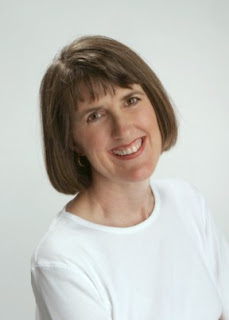 Happy Tuesday, everyone! What have I been doing this week, since I am free of deadlines (free, I tell you!), at least for the moment? Well, I have been sitting around watching season 3 DVDs of True Blood, trying out some kickboxing classes (and trying to figure out how to write an awesome kickboxing Regency duchess heroine–I’m pretty sure that won’t work out though), starting to get ready for RWA (less than three weeks away now, ack! At least I did remember to take my gown to the tailor), going to the movies, and getting caught up on reading. More on that later.
Happy Tuesday, everyone! What have I been doing this week, since I am free of deadlines (free, I tell you!), at least for the moment? Well, I have been sitting around watching season 3 DVDs of True Blood, trying out some kickboxing classes (and trying to figure out how to write an awesome kickboxing Regency duchess heroine–I’m pretty sure that won’t work out though), starting to get ready for RWA (less than three weeks away now, ack! At least I did remember to take my gown to the tailor), going to the movies, and getting caught up on reading. More on that later.
I was also thinking about Janet’s post last week about reviews, and about various things I’ve been seeing around on-line concerning yet more thinly-veiled misogyny masquerading as high-brow readership (Ew! Romance! Only old ladies and stupid people read those!). (for example, see this great post on AAR, Top Ten Cliches About Romance Novels I Never Want To Hear Again). I’ve been reading and writing romance for a long time, and bad reviews and snarky comments mostly roll off me by now (no time for them–deadlines and all that), but they still can piss me off when I take time to think about it (so I try not to).
One of the books I was reading this weekend was Tina Fey’s Bossypants, and she had this to say, which struck me as great advice for women no matter what artistic or business endeavor we’re pursuing. (Sorry for the long excerpt, but she says it way better than I could!):
“…whenever someone says to me “Jerry Lewis says women aren’t funny,” or “Christopher Hitchens says women aren’t funny,” or “Rick Fenderman says women aren’t funny…Do you have anything to say to that?”
Yes. We don’t f****** care if you like it.
I don’t say it out loud, of course, because Jerry Lewis is a great philanthropist, Hitchens is very sick, and the third guy I made up.
Unless one of those men is my boss, which none of them is, it’s irrelevant. My hat goes off to them. It is an impressively arrogant move to conclude that just because you don’t like something, it is empirically not good. I don’t like Chinese food, but I don’t write articles to prove it doesn’t exist.
So my unsolicited advice to women in the workplace is this. When faced with sexism or ageism or lookism or even really aggressive Buddhism, ask yourself the following question: “Is this person between me and what I want to do?” If the answer is no, ignore it and move on. Your energy is better used doing your work and outpacing people that way. Then, when you’re in charge, don’t hire the people who were jerky to you.
If the answer is yes, you have a more difficult road ahead of you. I suggest you model your strategy after the old Sesame Street piece “Over! Under! Through!” (If you’re under forty you might not remember this film. It taught the concepts of “over” “under” and “through” by filming toddlers crawling around an abandoned construction site. They don’t show it anymore because someone has since realized that’s nuts)…
Again, don’t waste your energy trying to educate or change opinions. Go “Over! Under! Through!” and opinions will change organically when you’re the boss. Or they won’t. Who cares? Do your thing and don’t care if they like it.”
So yeah, this book is hilarious and you should totally read it (though how can someone not like Chinese food??). Also she’s right, and that is now my new motto. Over Under Through. (Plus a cynical laugh and knowing look when someone tries to disparage romance fiction seems to work wonders)
What have you been doing with your time this week?? What is your strategy for dealing with annoying people?






